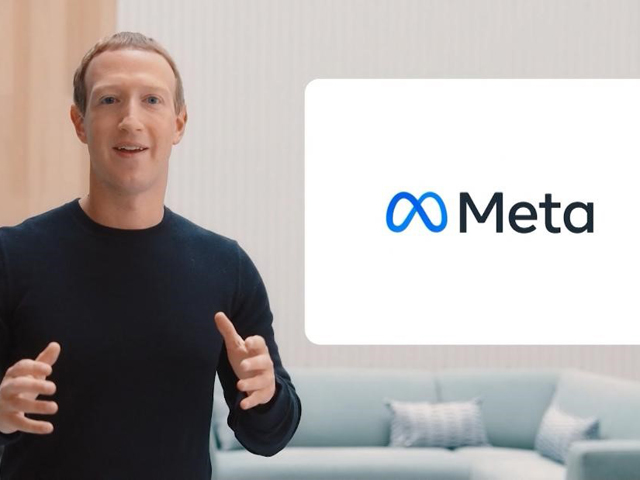
He who controls the metaverse controls the world? A dive into the metaverse and its complications
Author: Xiaohu Zhang
The new buzz around town and the next big breakthrough technology seems to be rising yet again from social media giant Facebook.
Amidst a scandalous 2021, billionaire social media mogul and CEO of Facebook, Mark Zuckerberg, announced the plans for Facebook to rebrand itself as Meta. In a now viral video presentation on YouTube, he explains that this name change reflects the company’s new focus of not only being a social media company but its ambitious step to innovate and expand into the technology and, specifically, the creation of a metaverse. This announcement has since propelled the topic of metaverse into the spotlight. However, Facebook is not the only company interested in such endeavors. The likes of Microsoft, Amazon, Tencent and many more industry players have also announced that they are in the process of developing and building their own metaverses. So, what exactly is the metaverse? And why does there seem to be so much interest and competition in creating one?
What is the metaverse?
The definition of a metaverse is constantly updated with each significant technological advancement pushing closer to its development. Mark Zuckerberg describes the metaverse as an online world or reality where individuals can socialize, work and play. The ideas of virtual or augmented reality (VR and AR) are nothing new. In fact, VR and AR have already steadily been implemented into multiple facets of our everyday lives. AR looks to blend virtual elements into real-life environments. A good example of AR would be the widely popular 2016 mobile phone game ‘Pokémon Go.’ VR focuses more heavily on immersion and users entering a virtual environment, usually through headsets such as Facebook’s Oculus Quest or Sony’s PSVR.

Oculus Quest 2 Headset (Source: Road To VR)
The boundless capabilities of such online environments are why these novel technologies have permeated various industries such as education, retail, and healthcare, generating a plethora of uses. The metaverse looks to build on these technologies to create an immersive world online.
Potential issues arising from the metaverse
Psychologist Albert Rizzo of the USC Institute for creative technologies has suggested that the metaverse could be detrimental to mental and physical health. He explains that by morphing the virtual and actual reality closer, individuals may choose to escape their daunting reality to an online world. This escape could exacerbate compulsive social media use, resulting in a deterioration in sleep, real-life relationships, and individuals’ health. Tech investor and critic of the metaverse Matthew Ball, builds on this and explains that a metaverse can encourage individuals to detach from their physical realities. This detachment is due to it being far easier to make changes in VR than in real life. He explains that users can edit, design, and alter their avatar’s aesthetic appearance to their liking in a metaverse. Ball elaborates that the metaverse offers individuals a chance to escape from their real-life circumstances, but the degree to which this is beneficial could be largely debated.
Another key concern regarding the metaverse are issues surrounding privacy. With their enormous user base, companies such as Facebook can profit from users’ data by packaging and selling them to various analytics companies. Data on user behavior and consumption patterns could be particularly useful in promoting political campaigns. The notorious Facebook and Cambridge Analytica scandal is one of the first significant instances that showed the world the effects of selling and using user data for profit and political influence. This scandal echoed the necessity for policy changes in order to regulate and maintain user privacy. The Facebook and Cambridge Analytica incident also showed the world the capabilities and advantages of targeting voters in political campaigns using user data. It exposed and reinforced that private companies were willing to profit regardless of real-world repercussions.
Facebook also currently fails to monitor the propagation and spread of misinformation on its online platforms resulting in the emergence of echo chambers that accelerate political polarization. Facebooks algorithms and a lack of policing played a crucial role in developing extremist groups such as QAnon. Events such as the Capitol Hill insurrection are clear indications of the potential dangers of an unmonitored social media platform. If Facebook currently struggles in monitoring its online platform, how would it ever be able to regulate an active metaverse on a far larger scale?
A cautionary tale for big tech
A cautionary tale for regulators could perhaps be the story of the 19th-century railway companies in the United States of America (US). Like these companies, the metaverse’s infrastructure is currently primarily developed by private companies. The railroads developed by these railway companies played an integral role in the development of the US during the 19th century. However, their growth with little to no regulation paved the way for monopolies with great lobbying power. Nearing the end of the 19th century, this issue became increasingly evident as they charged exorbitant fees to maximize their profits. These high fees meant that many consumers and smaller businesses could not enjoy the benefits of the railway.
It was far too late when government finally reacted to public complaints and created governing bodies to regulate railway companies. The companies had already attained too much wealth and lobbying power to be meddled with, and any governing body had little influence in regulating such powerful entities. The eventual introduction of alternate transports in the 20th century led to the demise of the railway companies’ power. Nonetheless, the US government still struggles to support and settle on agreements with railway companies in terms of improvements today. This lack of willingness to cooperate has hindered progress in rail transport in the US compared to countries such as Japan and China and their high-speed rail systems.
Similar to the railway infrastructure, the metaverse is currently being developed and built by private firms whose ultimate goal is to maximize profits. Suppose the metaverse is as disruptive as Zuckerberg has reasoned. In that case, the power an entity can attain by owning such disruptive technologies along with poor moderation and policy is a frightening prospect. The ability to utilize user data and limitless control over such technologies could lead to businesses with wealth and lobbying power never seen before.
Regulation and the metaverse
Meta has clarified that the development of the metaverse will be centred around respecting user privacy and wellbeing. They have also informed the public about working with governments and institutions to meet these objectives. Furthermore, regulation is slowly being developed to protect user privacy. However, is this enough? If the metaverse is to come into existence and become a global phenomenon, the complexity of creating regulation heightens. As countries exist with vastly different political and cultural contexts, the global standardization of laws could be a tough challenge and require the emergence of new international bodies.
New international bodies also raise more questions about regulation and governance. Who should have the authority to determine who should regulate the metaverse? Will there be a different set of rules for the metaverse in different countries? And if so, how will this be implemented? For example, how would data theft and other crimes be settled on the metaverse? And by who?
Moving forward
Governments and regulatory bodies must learn from the past to ensure and minimize the potential negative impact disruptive technologies can cause to society. Unfortunately, far too often have institutions failed the public by only taking action when it’s far too late. The metaverse’s potential appears to be boundless and exciting nonetheless, but it brings along an abundance of new issues we must consider.

Xiaohu Zhang is an MSc Innovation Management and Entrepreneurship student at the Alliance Manchester Business School. Strong interest in the Cryptoverse and future innovative developments in tech and finance.
An earlier version of this blog was prepared for BMAN61001 Entrepreneurship, Technology, and Society, Alliance Manchester Business School, The University of Manchester.
Featured image: Facebook CEO Mark Zuckerberg introducing Meta (Source: CNN).

0 Comments